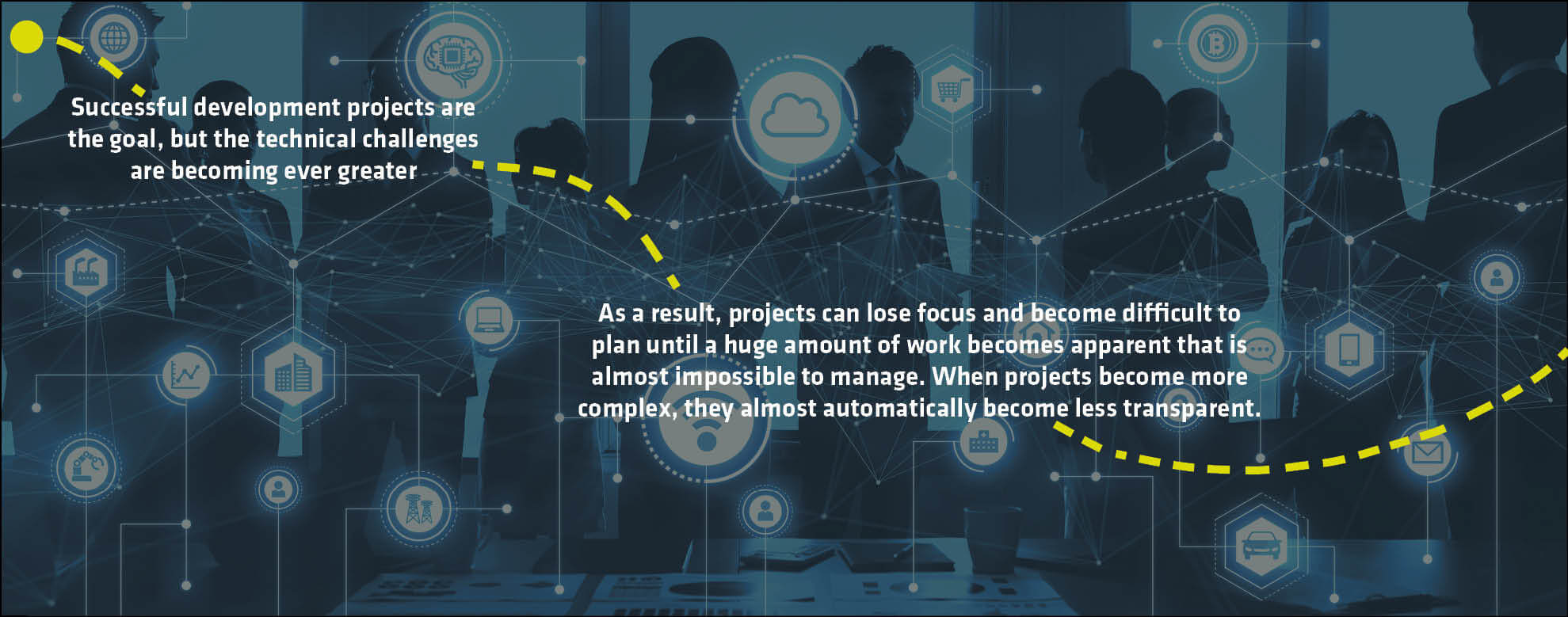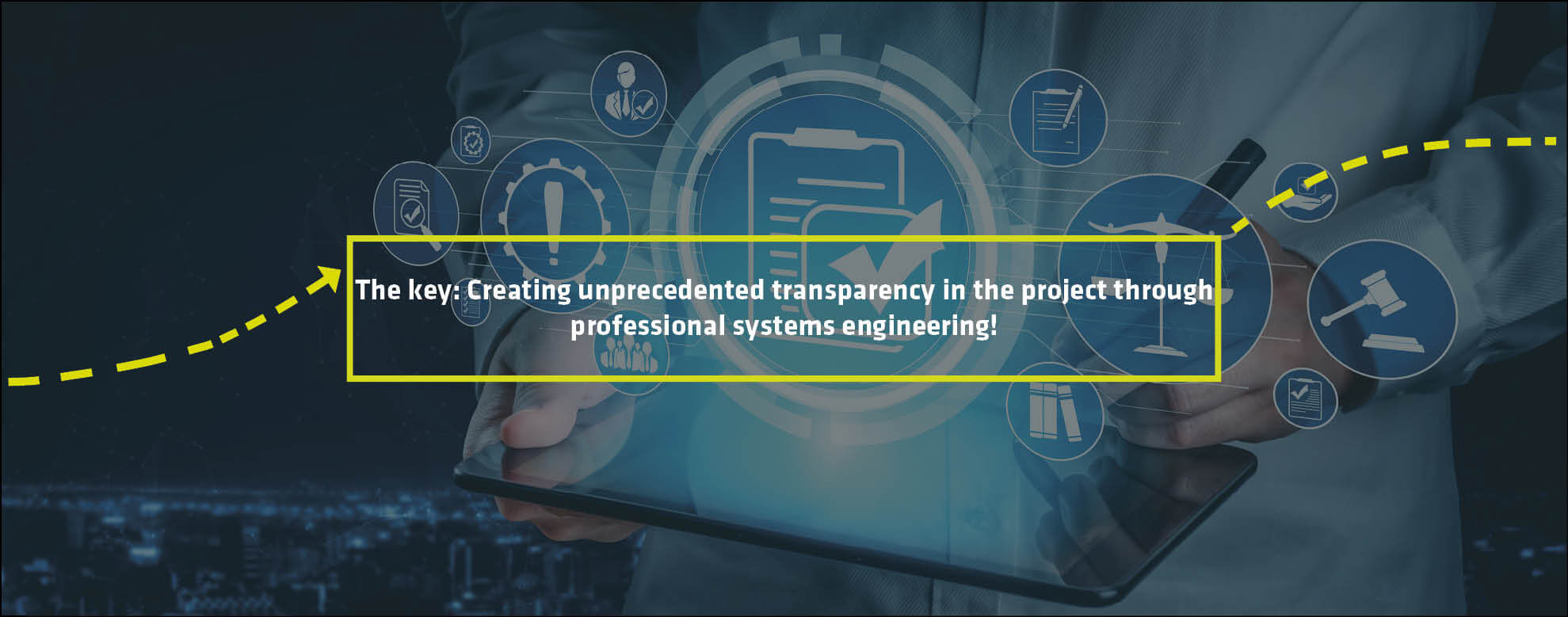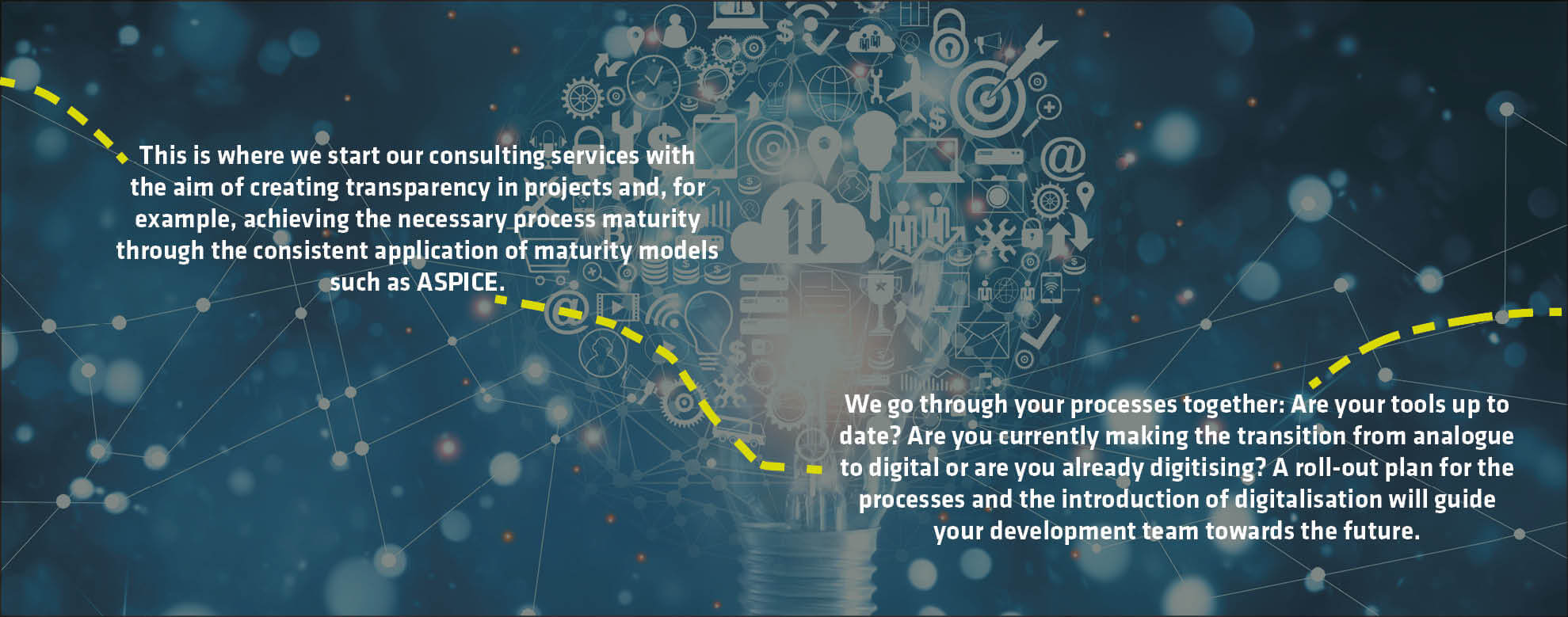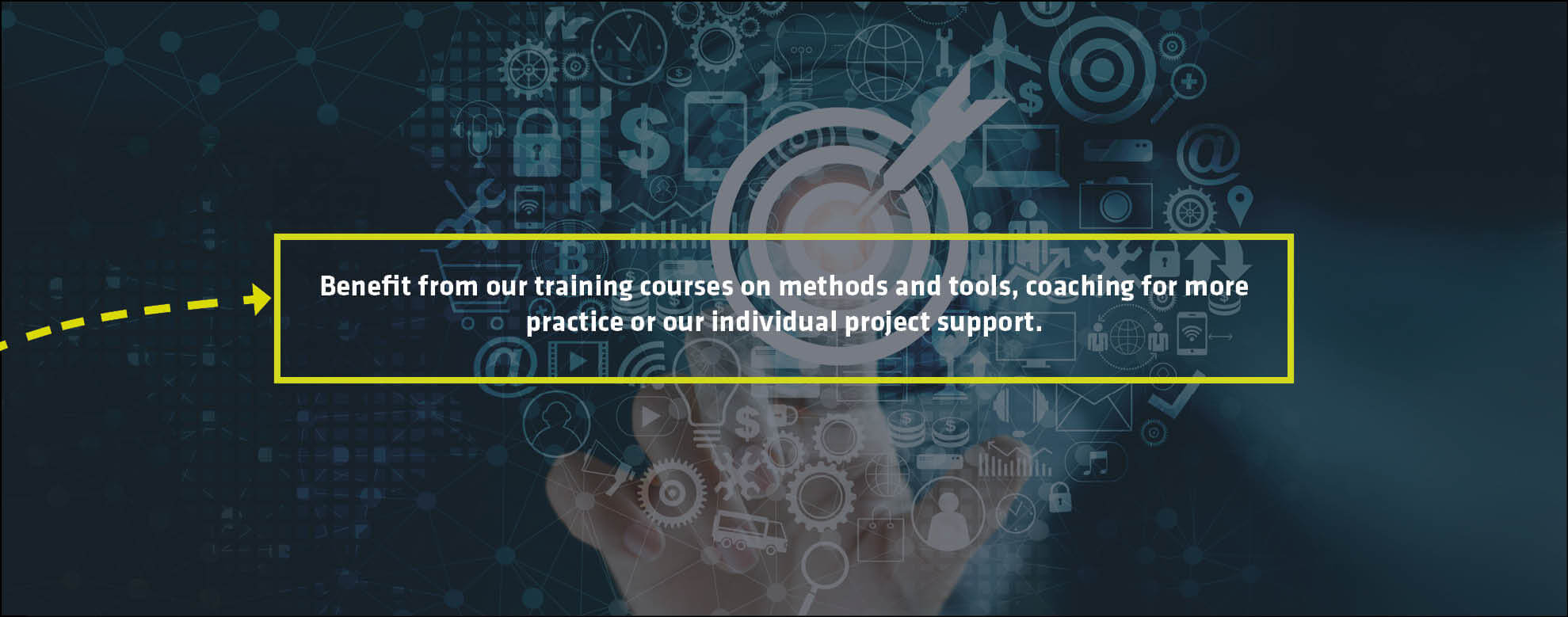



Systems Engineering is an interdisciplinary approach to the successful realisation of complex technical systems in scalable projects.
Why is normal project management no longer enough? Our world is becoming increasingly networked and complex; even seemingly simple products must now have comprehensive functions. This is clearly illustrated by the example of a bollard: previously manually swivelling, today it can be controlled and lowered using smart solutions.
Keywords such as 'digital transformation' and 'Industry 4.0' aptly summarise the increasing complexity. invenio uses 'methodical systems engineering' to cope with the increasing complexity of product development across all industries. The essential approach lies in clear project management and very good requirements management.




We at invenio Systems Engineering, we rely on modern, customisable and low-threshold systems engineering methods to ensure the success of your project. This gives you greater transparency in the project, enables you to track your requirements at all times and work efficiently to achieve a high-quality result.
Master complexity, minimise risks and act efficiently with systems engineering – that is our motto!
Our services start where you need them. Whether in training courses to familiarise yourself with a suitable requirements management tool or in the personal support of your team by one of our experts for optimum knowledge transfer. Coaching sessions to expand theoretical knowledge in practice and comprehensive consulting round off our portfolio.
Strict regulations must be adhered to in the product development process, particularly in the medical technology and automotive sectors. However, development according to ASPICE®, for example, is not always easy. However, creating structured and clear requirements from the outset that are comprehensible at all times is a crucial building block for high quality and rapid market approval in more complex projects. Tools such as Polarion®ALM™ from Siemens help to create transparency and structure in the requirements, which offers decisive added value.
Our experts can advise you on requirements management methodologies in general, on suitable processes and procedures according to ASPICE® and, as a certified sales partner, on Polarion®ALM™.
At invenio, we offer you training and coaching to provide you with the best possible and comprehensive support. You will soon benefit from comprehensible requirements and ensure the success of your project. In a training course, there is a trainer with specialised knowledge who concentrates on imparting knowledge. The trainer provides the content, but also interacts with the participants. His goal for the participants is, for example, to convey the content of an upcoming exam preparation.
In an individual coaching session, a coach accompanies his or her coachee, clarifies the current situation and derives goals from it. Content from the training sessions can be deepened and individual solutions found. If you are interested in coaching, please contact us.
To make the use of tools such as Polarion®ALM™ more practical and easier for users, we at invenio Systems Engineering offer our own product solutions. From the management of Polarion® configurations to a smart link between Redmine and Polarion®ALM™, we make working with structured requirements management as easy as possible and support you with the applications.
With our invenio team of experts, we provide you with qualified specialists in your environment as project participants. Within project support, they not only tackle the tasks at hand, but also competently explain the methodological approach and pass this knowledge on to your company's employees.
From the creation of specifications for targeted development to the transfer of expertise on methodical systems engineering, we are at your side for your specific project, whether as a temporary employee or as part of a service contract.
Based on our in-depth understanding of methods in systems and requirements engineering, we offer you customised training courses. Our focus is always on developing suitable methods for you so that we can create the added value you need for your development.
Regardless of the tool provider, we provide you with comprehensive advice when selecting the right software for systems engineering. In addition, our wide-ranging knowledge in this subject area allows us to explain the programme functions in detail.
We support you in process analysis and optimisation from classic to agile procedures – from V-model to SCRUM. We also offer you support in carrying out assessments or implementing processes for the development of safety-critical systems. Optimise your projects with the proven 'invenio road' for successful product and system development. We advise and support you to make your projects ASPICE®-capable.
We know the common thread that you need to steer all project participants with their tasks and framework conditions. Our systems engineering covers all process steps of the entire product life cycle: from the initial idea and task definition to system analysis/design, production, verification and validation through to the replacement of the product – across all industries. We guarantee the adequate integration of all necessary engineering disciplines such as mechanics, electronics or software as well as the consideration of all external and internal interfaces.
You can rely on our professional support – from consulting services, practical training and coaching to the provision of expertise. Our qualified employees can draw on extensive experience from a wide range of industries. We roll out the decisive steps and measures specifically tailored to your individual starting position. At the same time, our specialists implement these measures together with your team.
Feel free to contact us to discuss your needs in an initial meeting.
Systems engineering has established itself over decades in those industries where the interrelationships are complex or safety-critical and errors lead to high costs. Nowadays, the systems engineering approach can be used for all product and system developments. The focus here is on the methods, tools and processes and how they are linked in the project. Systems engineering thus provides a holistic, multidisciplinary and collaborative basis for the development, design and manufacture of complex products.
For us, systems engineering is more than just an intelligent approach: it is a multi-faceted solution for complex technical products, agilely managing the requirements of various stakeholders and keeping them in focus throughout the entire product development process. Systems engineering guarantees the adequate integration of all necessary engineering disciplines such as mechanics, electronics or software as well as the consideration of all external and internal interfaces. We work according to the following motto: master complexity, minimise risks.
Nowadays, projects and products are becoming more complex and project teams are both more international and more interdisciplinary, which requires significantly more coordination between the participants. In addition, changes to the product are the order of the day, whether due to customer requirements or regular changes to local and global legal frameworks and regulations. Only a consistent development process allows an efficient approach to the technical solution as well as system-supported verifiability of the requirements. Systems engineering encompasses all of these aspects: With a common system model, errors can be recognised and avoided at an early stage through interdisciplinary and structured work and close interaction with all responsible stakeholders.
Starting with the initial idea and task definition, through targeted development, operation and the end-of-life phase, we support you in precisely defining and documenting all development steps. This includes all process steps of the product life cycle.
Projects and products are becoming more complex and project teams are becoming more international and interdisciplinary, which requires significantly more coordination.
Changes are the order of the day, whether due to customer requirements or regular changes to local and global legal frameworks and regulations. Only a consistent development process allows an efficient approach to the technical solution and system-supported verifiability of requirements.
Systems engineering encompasses all of these aspects and therefore offers an increase in efficiency and quality with significantly fewer error corrections.
In addition to many other uncertainties, projects harbour three main risks from the outset that can lead to failure:
Missing or incomplete requirements
Incorrect and/or inconsistent requirements
Continuously changing requirements
Complete documentation of all requirements and process steps is essential, at the latest when developing product variants, so that variant management and the reusability of designs and products can be guaranteed.
In complex projects, many important elements of development are quickly overlooked. Questions about functional safety, development tools, development processes, etc. require extensive knowledge and experience. invenio Systems Engineering supports you in all project steps:
Implementation: Our qualified employees draw on their experience from various industries and know the common thread you need to manage all project participants with their tasks and framework conditions.
Tools: Our employees have extensive experience with common software solutions such as IBM Rational Jazz Platform with DOORS and Siemens Polarion as well as tools such as Magic Draw or Enterprise Architect. This enables them to quickly familiarise themselves with existing software structures or to advise you comprehensively and independently of the tool provider when introducing software.
Technical Consulting: In the areas of requirements engineering and requirements management, we also support you with advice on creating system architectures and linking them to the requirements. Find out more about our technical consulting services in the following areas:
Project Support: If necessary, we support you in the introduction of systems engineering with specialised personnel. Click here for more information on project support.
Further Training: With our own training academy, we not only regularly train our employees, but also offer this programme to external participants. Find out more about the training courses on offer and book your training here.
Would You like to contact us?
Gladly we are at your disposal for any questions!